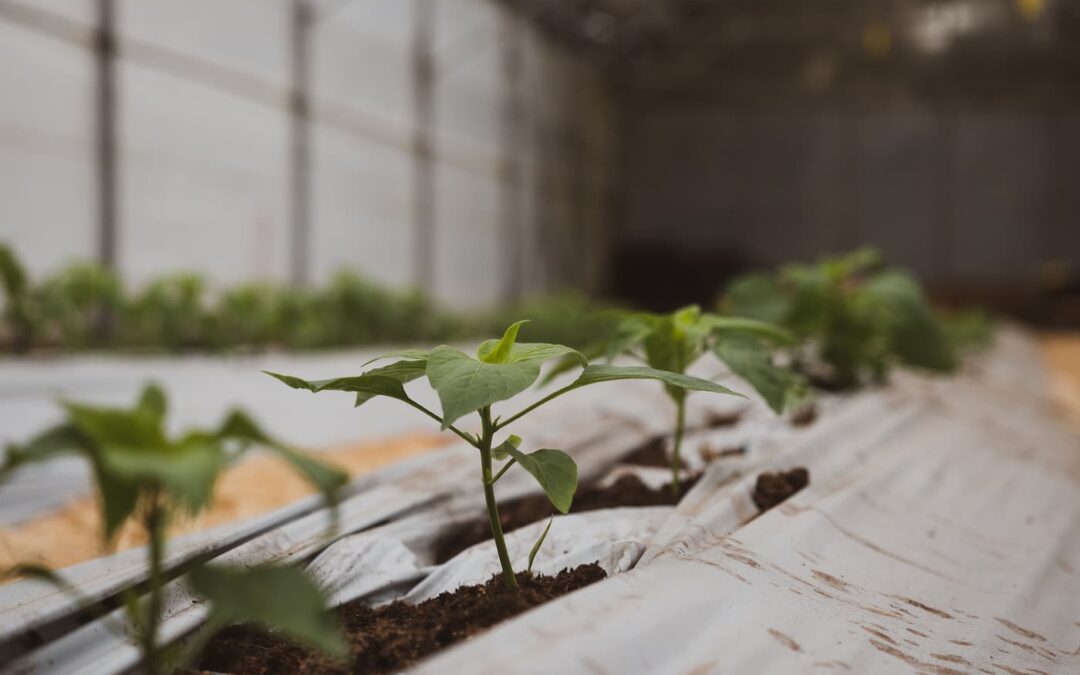In the vast landscapes of modern agriculture, the quest to feed a burgeoning global population has been aided by synthetic fertilizers. These chemical concoctions have become a cornerstone of conventional farming, enabling rapid nutrient delivery to crops and ensuring robust yields. Yet, as the agricultural canvas evolves, concerns about the environmental repercussions of synthetic fertilizers have begun to overshadow their immediate gains. This article delves into the intricate world of synthetic fertilizers, unpacking their mechanisms, the adverse ecological ripples they create, and the promise of organic alternatives in sculpting a more sustainable agricultural future.
How Synthetic Fertilizers Work
Synthetic fertilizers, also dubbed chemical fertilizers, embody the essence of modern agricultural practices. These man-made formulations are enriched with essential nutrients such as nitrogen, phosphorus, and potassium. Their allure lies in their ability to rapidly invigorate plant growth, amplifying crop yields and bolstering agricultural productivity. The convenience and immediate impact have led to their widespread adoption, altering the agricultural landscape dramatically.
Environmental Impact of Synthetic Fertilizers
Soil Degradation
The allure of synthetic fertilizers can be deceiving. While they yield short-term triumphs, their prolonged usage can usher in far-reaching repercussions for soil vitality. The delicate fabric of soil structure is disrupted by these fertilizers, triggering a cascade of consequences. Water retention capacity dwindles, and the equilibrium of soil microorganisms—crucial for nutrient cycling and plant vigor—is thrown into disarray. The upshot? Continuous application of synthetic fertilizers engenders nutrient imbalances, leading to soil infertility and diminished agricultural efficiency.
Water Pollution
One of the most alarming consecuences arising from synthetic fertilizers is water pollution. When rains or irrigation sluice away the excess nutrients from fields, nitrogen and phosphorus—the primary culprits—percolate into rivers, lakes, and oceans. In this context, these nutrients trigger harmful algal blooms, depleting oxygen levels and devastating aquatic ecosystems. Eutrophication, a significant environmental concern, reshapes aquatic environments with far-reaching consequences.
Air Pollution
Synthetic fertilizers have a far-reaching impact. When applied, they release volatile compounds, such as ammonia and nitrous oxide, a potent greenhouse gas, into the air. This aerial emission affects air quality and contributes to the urgent need to address synthetic fertilizers’ collateral damage on the environment and climate change.
Environmental Benefits of Organic Alternatives in Agriculture
In response to mounting ecological concerns, organic alternatives take center stage in sustainable agriculture. Derived from natural sources, these fertilizers offer gradual nutrient release, aligning with the unhurried cadence of plant growth.
Nutrient Release and Soil Health
Organic alternatives work in harmony with nature’s clock, breaking down gradually to deliver nutrients to plants over time. This measured approach minimizes nutrient leakage and runoff, enhancing water quality. Additionally, the infusion of organic matter improves soil structure and fosters microbial diversity, promoting nutrient cycling and a thriving soil biome for ecological balance.
Water Conservation
The water-saving properties of organic alternatives hold significant importance. Organic matter in these fertilizers enhances soil’s water retention capacity, reducing drought’s impact and lessening the need for excessive irrigation. Water conservation isn’t just an ecological benefit but a prudent response to growing water scarcity, supporting sustainable agricultural practices.
Reduced Greenhouse Gas Emissions
Shifting to organic alternatives isn’t only beneficial for soil and water but a call for climate action. Organic farming practices, including cover cropping and reduced tillage, reduce emissions of nitrous oxide, a potent greenhouse gas. This contributes to climate mitigation and aligns sustainable farming with the preservation of the planet’s equilibrium.
Supporting Biodiversity and Ecosystem Health
Organic alternatives foster biodiversity and ecosystem vitality. Unlike synthetic fertilizers, which can harm beneficial insects and pollinators, organic practices create a thriving mosaic of organisms that aid in pollination and natural pest control. This harmonious interplay nurtures a productive alliance between agriculture and the environment.
Local and Global Environmental Impact
Synthetic fertilizers’ adverse effects reach beyond local fields, contaminating water bodies and affecting nearby communities. On a global scale, their production depletes energy reserves and disrupts the environmental balance. Organic alternatives offer a remedy that addresses local and global challenges, fostering environmentally conscious agriculture.
Economic Considerations
The ecological benefits of organic alternatives present an economic proposition. While synthetic fertilizers offer expedience, their prolonged use may lead to soil degradation and reduced yields. In contrast, organic practices promote sustained soil health, providing sustainable returns and potentially reducing the need for costly inputs.
Transitioning to Organic Practices
Shifting from synthetic fertilizers to organic alternatives requires a recalibration of agricultural strategies. Soil tests, cover cropping, composting, and crop rotation are essential steps for farmers and gardeners embarking on the journey toward improved soil health and reduced dependence on synthetic inputs.
The environmental impact of synthetic fertilizers is a complex challenge, offering short-term benefits alongside ecological risks. In contrast, organic alternatives, inspired by nature’s wisdom, encourage responsible farming. They promote gradual nutrient release, water conservation, reduced greenhouse gas emissions, and biodiversity. Shifting to organic agriculture signifies more than a technique change; it signifies our planet’s need for conscientious stewardship. Organic farming promises a fruitful harvest that nurtures both the land and our interdependence with the environment.

